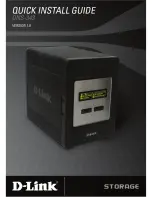
Table 4. Front panel features and indicators — four 3.5-inch cabled hard drive chassis
Item
Indicator, Button, or
Connector
Icon
Description
1
Power-on indicator,
power button
Enables you to know the power status of the
system. The power-on indicator glows when the
system power is on. The power button controls
the power supply output to the system.
NOTE: On ACPI-compliant operating systems,
turning off the system by pressing the power
button causes the system to perform a
graceful shutdown before power to the
system is turned off.
2
NMI button
Enables you to troubleshoot software and device
driver errors when running certain operating
systems. This button can be pressed by using the
end of a paper clip.
Use this button only if directed to do so by
qualified support personnel or by the operating
system's documentation.
3
System identification
button
Enables you to locate a particular system within a
rack. The identification buttons are on the front
and back panels. When one of these buttons is
pressed, the LCD panel on the front and the
system status indicator on the back flash until one
of the buttons is pressed again.
Press the system identification button to turn the
system ID on or off.
If the system stops responding during POST, press
and hold the system ID button for more than five
seconds to enter BIOS progress mode.
To reset iDRAC (if not disabled in F2 iDRAC setup),
press and hold the button for more than 15
seconds.
4
Video connector
Enables you to connect a display to the system.
5
Diagnostic indicators
Glows to display error status. For more
information, see
Diagnostic indicators
.
6
USB connectors
Enable you to connect USB devices to the system.
The ports are USB 2.0-compliant.
7
Information tag
Contains system information such as service tag,
NIC, MAC address for your reference. The
information tag is a slide-out label panel.
8
Hard drive slots
Enables you to install up to four 3.5-inch cabled
hard drives.
13














































